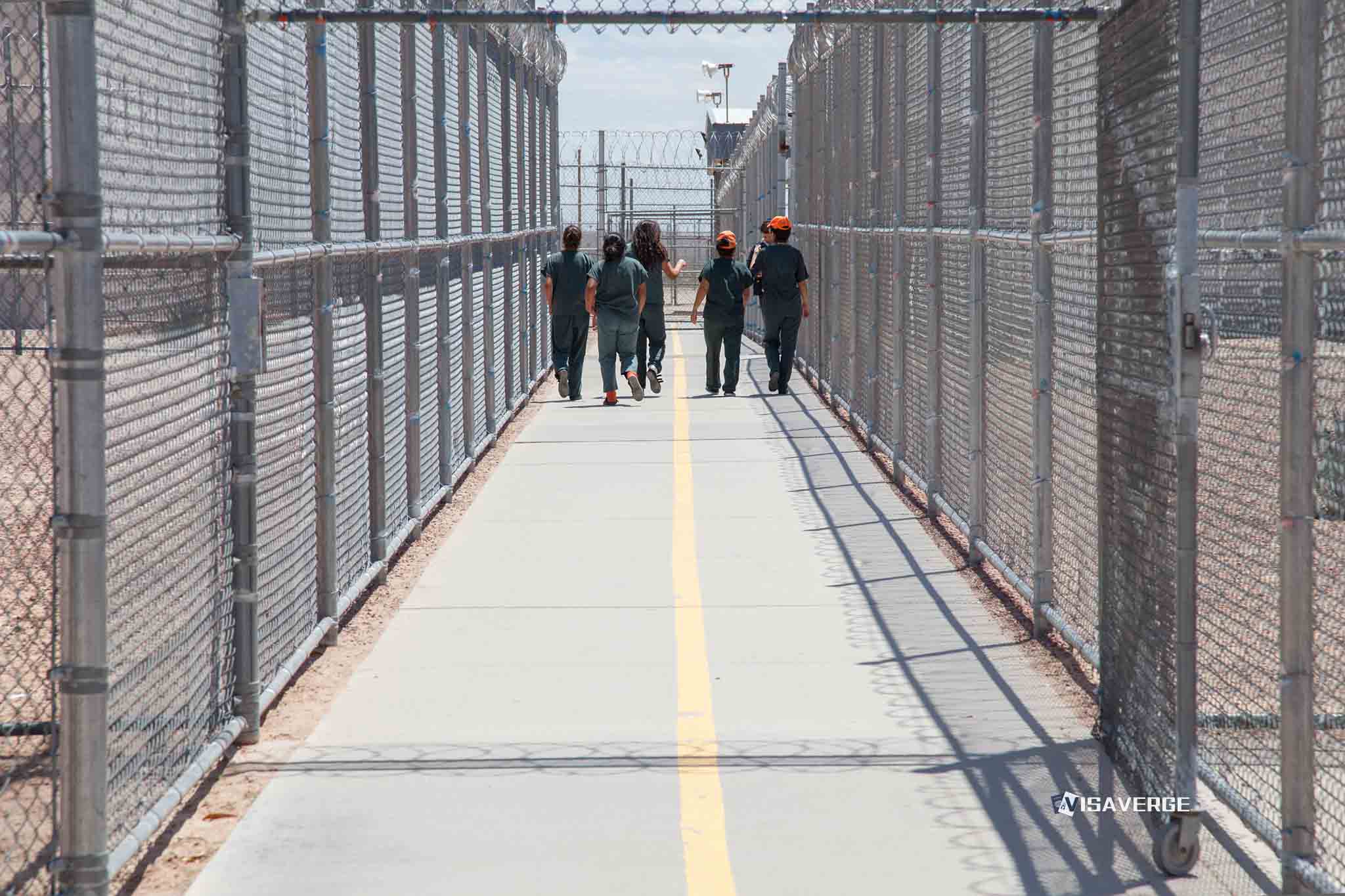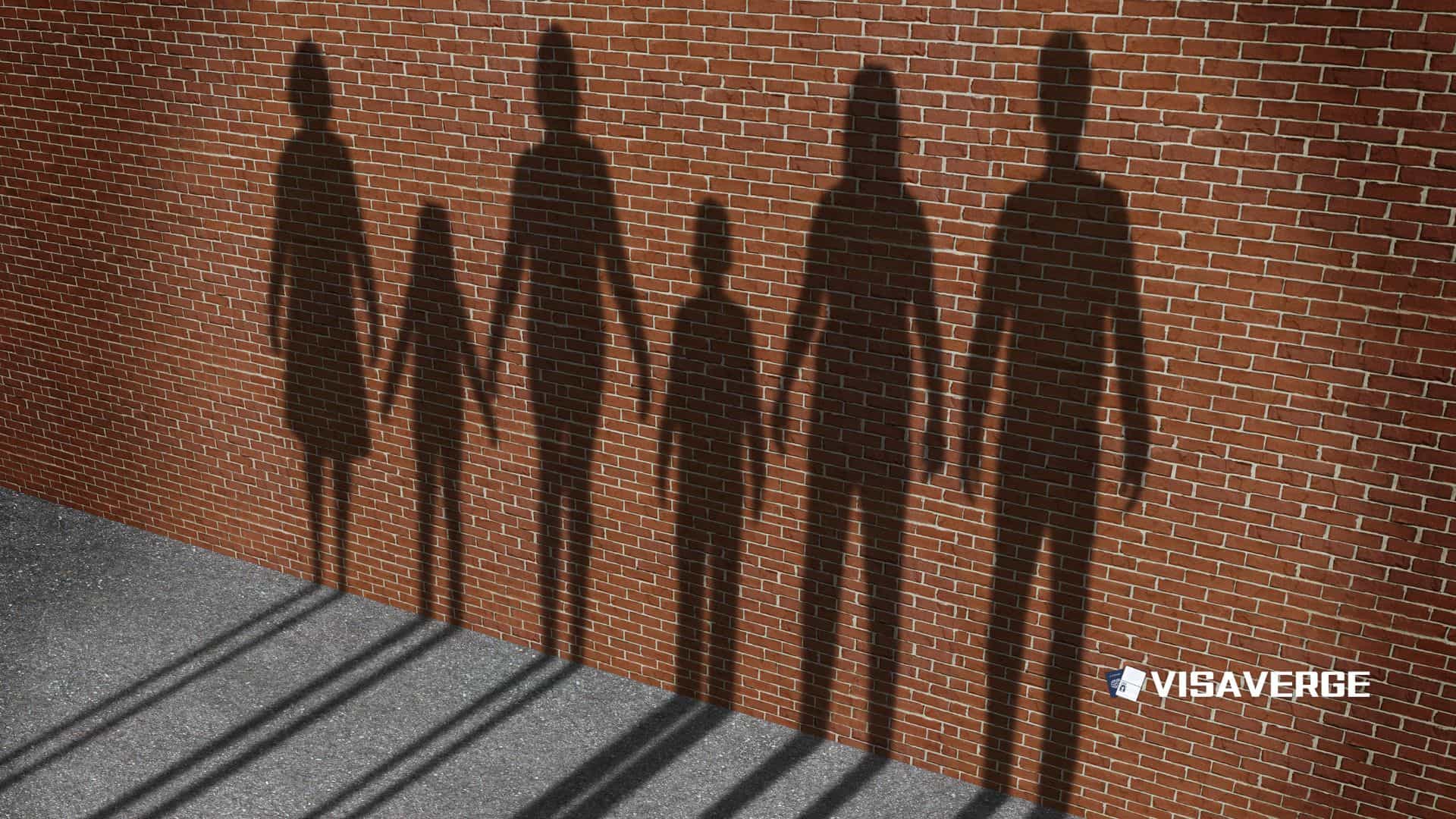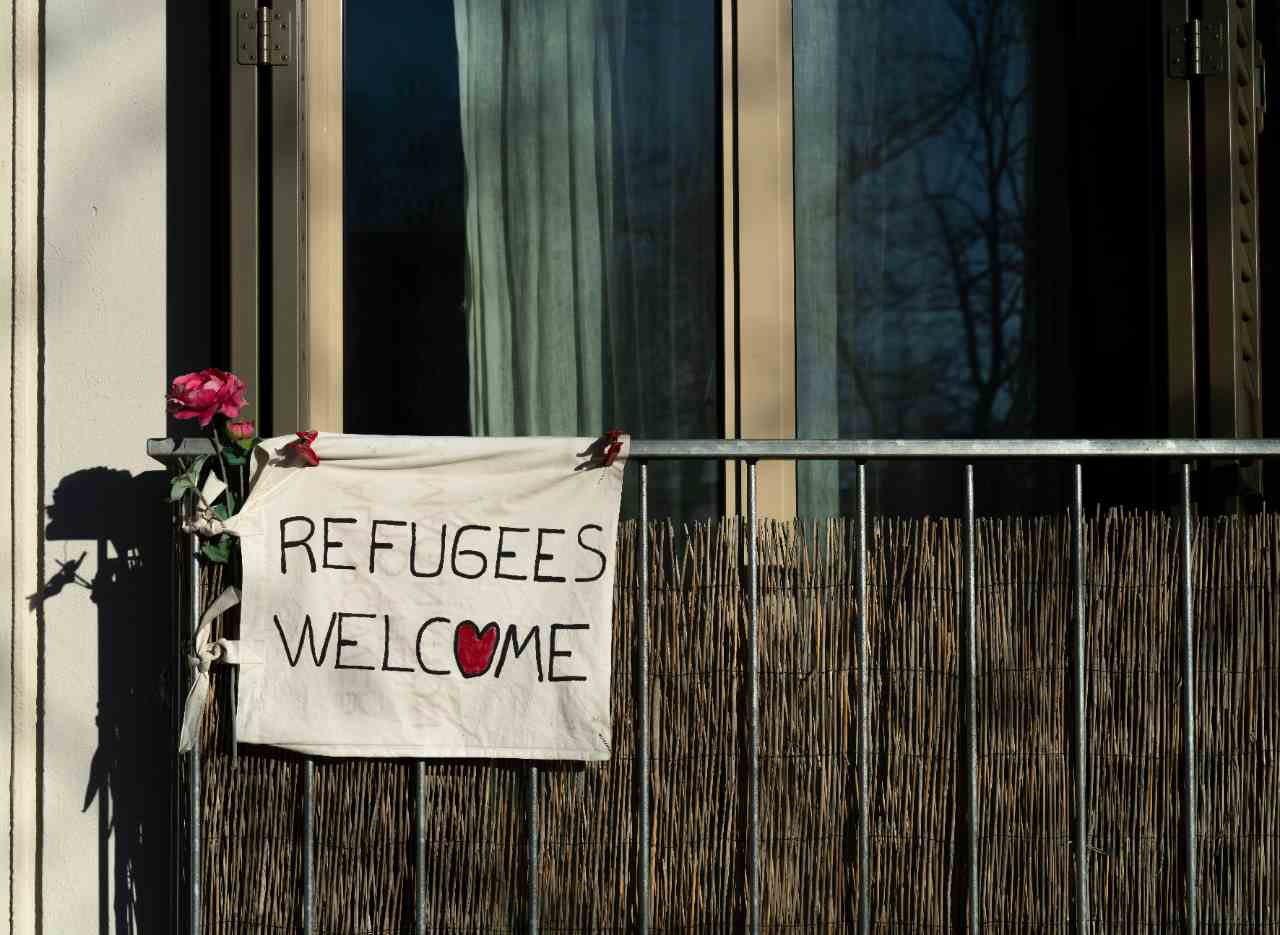Key Takeaways
• On June 30, 2025, DOJ sued Los Angeles for sanctuary policies limiting local-federal immigration cooperation.
• Mayor Karen Bass defends policies as protecting immigrants and fostering community trust against federal claims.
• Federal lawsuit alleges sanctuary policies cause lawlessness, blocking enforcement and risking public safety.
A major legal battle is unfolding in Los Angeles as the Trump administration, through the U.S. Department of Justice, filed a federal lawsuit on June 30, 2025, against the City of Los Angeles, Mayor Karen Bass, and the City Council. The lawsuit challenges the city’s sanctuary policies, which limit cooperation between local law enforcement and federal immigration authorities. This move marks a new chapter in the ongoing struggle between federal and local governments over immigration enforcement and the rights of immigrant communities.
What Happened and Why It Matters

On June 30, 2025, the Department of Justice, under President Trump, filed a federal lawsuit targeting Los Angeles’ sanctuary policies. These policies prevent local police from detaining people solely based on their immigration status or from honoring requests by Immigration and Customs Enforcement (ICE) to hold individuals without a judicial warrant. The federal government claims these policies violate federal law and have led to “lawlessness, rioting, looting, and vandalism” in Los Angeles since June 6, 2025.
The lawsuit alleges that Los Angeles’ approach “thwarts” federal immigration enforcement and blocks necessary communication between federal, state, and local law enforcement agencies. According to the Department of Justice, this lack of cooperation undermines public safety and the rule of law.
This legal action comes after a series of protests in Los Angeles, sparked by immigration raids on farms and businesses. These events led to a temporary citywide curfew, which was lifted as protests calmed down. The lawsuit is part of a broader conflict between the Trump administration and California officials, including Governor Gavin Newsom, who has taken legal steps to block the deployment of the National Guard in response to unrest related to immigration enforcement.
Mayor Karen Bass’s Response
Mayor Karen Bass responded quickly and forcefully to the lawsuit. On July 1, 2025, she called the federal action “an all-out assault against Los Angeles.” She emphasized that the city’s sanctuary policies reflect the will of its residents and are designed to protect immigrant communities. Bass stated, “We are a city of immigrants,” highlighting the city’s long history of welcoming people from around the world.
Bass also stressed that Los Angeles is committed to upholding constitutional rights and protecting all residents, regardless of immigration status. She argued that the city’s approach builds trust between immigrant communities and local law enforcement, making it easier for everyone to report crimes and cooperate with police without fear of deportation.
Ernesto Medrano, executive secretary of the LA/OC Building Trades, joined Bass in defending the city’s policies. Representing over 160,000 construction workers, Medrano pointed out that job sites and buildings have become targets for enforcement actions based on assumptions about workers’ immigration status, rather than actual wrongdoing. He warned that the lawsuit could make these problems worse, putting workers and their families at greater risk.
What Are Sanctuary Policies?
Sanctuary policies are local laws or rules that limit how much local police and government agencies help federal immigration authorities. In Los Angeles, these policies mean:
- Local police do not detain people just because of their immigration status.
- Police do not honor ICE detainer requests unless there is a judicial warrant.
- City resources are not used to help federal immigration enforcement unless required by law.
The goal is to make sure that immigrants feel safe reporting crimes, seeking help, and living their lives without constant fear of deportation. Supporters say these policies improve public safety by encouraging trust and cooperation between police and the community.
The Federal Lawsuit: Key Claims and Arguments
The Department of Justice argues that Los Angeles’ sanctuary policies violate the U.S. Constitution by blocking federal immigration law enforcement. The lawsuit claims these policies have led to increased crime and unrest in the city, especially following the recent protests and raids.
Federal officials say that by refusing to cooperate with ICE and other agencies, Los Angeles is making it harder to enforce immigration laws and keep the public safe. They argue that federal law requires local governments to share information and help with immigration enforcement when asked.
The lawsuit also claims that sanctuary policies prevent local police from working closely with federal agencies, which can make it harder to catch dangerous criminals or respond to emergencies.
Legal and Policy Perspectives
Legal experts and advocacy groups have pushed back against the federal government’s claims. The Center for Immigration Law and Policy (CILP) at UCLA School of Law, for example, argues that the lawsuit is an attempt to punish Los Angeles for protecting immigrant rights. Talia Inlender, Deputy Director of CILP, points out that courts have repeatedly found the federal government cannot force local governments to enforce federal immigration laws. This is because of the principle of “local autonomy,” which means cities and states have the right to make their own decisions about how to use their resources.
Inlender also says that Los Angeles’ sanctuary ordinance is legally sound and supported by data showing that separating local police from federal immigration enforcement actually improves public safety and helps the economy. According to analysis by VisaVerge.com, many studies have found that sanctuary policies do not lead to higher crime rates and can make communities safer by building trust between police and residents.
Impact on Immigrants and the Community
The outcome of this lawsuit could have a big impact on immigrants living in Los Angeles and other cities with similar policies. If the federal government wins, Los Angeles might have to change its policies and start cooperating more with federal immigration authorities. This could mean:
- Local police might detain people for immigration reasons, even if they have not committed any other crime.
- Police could honor ICE detainer requests without a judicial warrant, leading to more deportations.
- Immigrant communities might become more fearful and less likely to report crimes or cooperate with police.
Supporters of sanctuary policies worry that forcing local police to act as immigration agents will make communities less safe, not more. They argue that people will be afraid to call 911, report domestic violence, or help police solve crimes if they think they might be deported.
On the other hand, the Trump administration and supporters of the lawsuit argue that sanctuary policies make it harder to enforce immigration laws and can allow dangerous individuals to avoid deportation.
Stakeholders and Their Positions
Several key groups and individuals are involved in this debate, each with their own perspective:
- Mayor Karen Bass: Strongly defends sanctuary policies, saying they protect immigrant residents and uphold constitutional rights.
- Trump Administration / Department of Justice: Claims sanctuary policies violate federal law and have caused public safety problems in Los Angeles.
- Governor Gavin Newsom: Has taken legal action to block federal efforts to deploy the National Guard in response to unrest related to immigration enforcement.
- Ernesto Medrano (LA/OC Building Trades): Warns that workers and job sites are being unfairly targeted because of assumptions about immigration status.
- UCLA CILP (Talia Inlender): Argues that Los Angeles’ policies are legal and supported by evidence showing they benefit public safety and the economy.
Broader Context: Sanctuary Cities Across the United States 🇺🇸
Los Angeles is not alone in adopting sanctuary policies. Many cities and states across the United States 🇺🇸 have similar rules that limit cooperation with federal immigration authorities. These policies are often designed to protect immigrant communities and build trust between police and residents.
The Trump administration has challenged sanctuary policies in other cities as well, leading to a series of legal battles over the past several years. Courts have sometimes sided with local governments, saying the federal government cannot force them to enforce immigration laws. However, the legal landscape is complex, and each case can set new precedents.
The outcome of the lawsuit against Los Angeles could have wide-reaching effects, influencing how other cities and states approach immigration enforcement and local autonomy.
Legal Background: Federalism and Local Autonomy
At the heart of this legal fight is the question of federalism, which is the balance of power between the federal government and local or state governments. The U.S. Constitution gives the federal government the power to set immigration laws, but it also protects the rights of states and cities to make their own decisions about how to use their resources.
Courts have often ruled that the federal government cannot “commandeer” local police or force them to carry out federal duties. This principle has been central to many legal battles over sanctuary policies. For example, in past cases, judges have found that the federal government cannot withhold funding from cities just because they refuse to help enforce immigration laws.
Legal experts expect the lawsuit against Los Angeles to raise similar questions. The case could take months or even years to resolve, as both sides present their arguments and the courts weigh the constitutional issues involved.
What’s Next? The Road Ahead
As of July 2, 2025, the lawsuit is active in federal court, and there is no immediate resolution in sight. Legal experts predict a long and complicated legal battle, with both sides likely to appeal any decisions they do not agree with.
Los Angeles officials have made it clear they will fight hard to defend their sanctuary policies and the rights of immigrant residents. The city has a history of standing up for immigrant communities, and many local leaders see this lawsuit as a test of their commitment to those values.
The outcome of this case could set important precedents for other cities and states across the United States 🇺🇸. If the courts side with Los Angeles, it could strengthen the ability of local governments to set their own policies and protect immigrant communities. If the federal government wins, it could force many cities to change their approach and cooperate more closely with federal immigration authorities.
Practical Guidance for Immigrants and Residents
For immigrants and their families living in Los Angeles, this legal battle can be confusing and stressful. Here are some practical steps to consider:
- Stay Informed: Follow updates from the City of Los Angeles and trusted organizations like the UCLA Center for Immigration Law and Policy for the latest news on the lawsuit and any changes to local policies.
- Know Your Rights: Immigrants have certain rights under the U.S. Constitution, regardless of immigration status. For example, everyone has the right to remain silent and to speak with a lawyer if questioned by police or immigration authorities.
- Seek Legal Help: If you or someone you know is affected by immigration enforcement actions, contact a qualified immigration lawyer or a trusted legal aid organization for advice.
- Report Crimes: Los Angeles police have stated they will not ask about immigration status when someone reports a crime. It is important to continue reporting crimes and cooperating with police to keep communities safe.
For more information on your rights and local policies, you can visit the City of Los Angeles official website.
Official Resources and Further Reading
- U.S. Department of Justice: For official statements and filings related to the lawsuit, visit the Department of Justice website.
- UCLA Center for Immigration Law and Policy (CILP): For expert analysis and updates on immigration law and policy, follow CILP on Instagram @UCLA_CILP or subscribe to their news updates.
- VisaVerge.com: For ongoing analysis and coverage of immigration policy developments, VisaVerge.com reports that legal experts expect this case to influence sanctuary policies nationwide.
Conclusion: What’s at Stake
The federal lawsuit against Los Angeles, Mayor Karen Bass, and the City Council is more than just a legal dispute—it is a test of how the United States 🇺🇸 balances federal authority with local control, and how it treats immigrant communities. The outcome will affect not only Los Angeles but also cities and states across the country that have adopted sanctuary policies.
As the legal process unfolds, immigrants, local officials, and community members will be watching closely. The decisions made in this case could shape the future of immigration enforcement, public safety, and the rights of cities to protect their residents for years to come.
Learn Today
Sanctuary Policies → Local rules that restrict police cooperation with federal immigration enforcement to protect immigrants.
ICE Detainer → A federal request to hold individuals for immigration authorities without immediate state release.
Federalism → The constitutional balance of power between the federal government and local or state governments.
Local Autonomy → The right of cities or states to govern themselves without federal government interference.
Curfew → A temporary legal order restricting movement, often during civil unrest or emergencies.
This Article in a Nutshell
The Trump administration filed a federal lawsuit against Los Angeles’ sanctuary policies, claiming they undermine immigration enforcement and public safety. Mayor Karen Bass strongly opposes the suit, highlighting the city’s immigrant-friendly approach. This legal battle weighs local autonomy against federal authority impacting immigrant community protections nationwide.
— By VisaVerge.com








